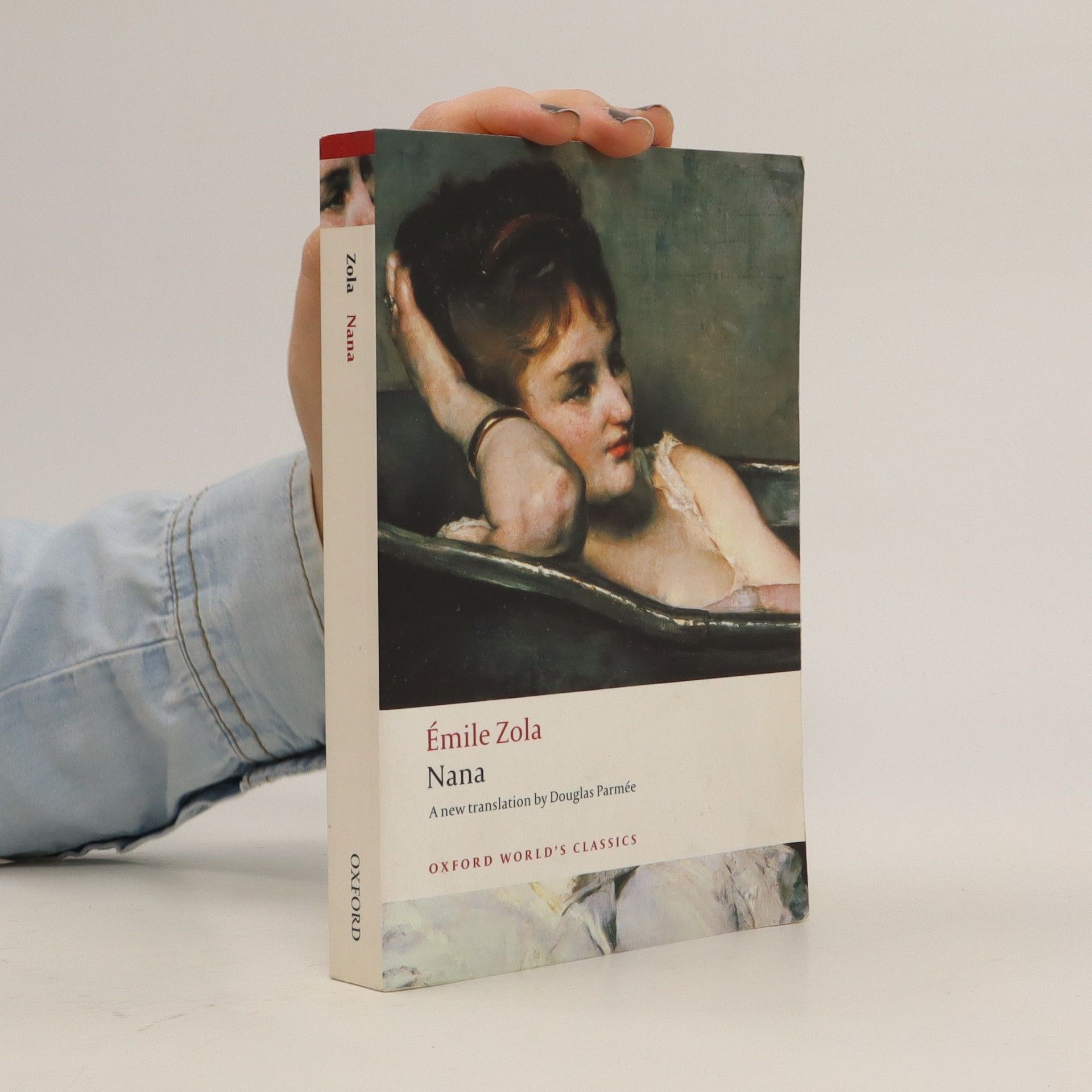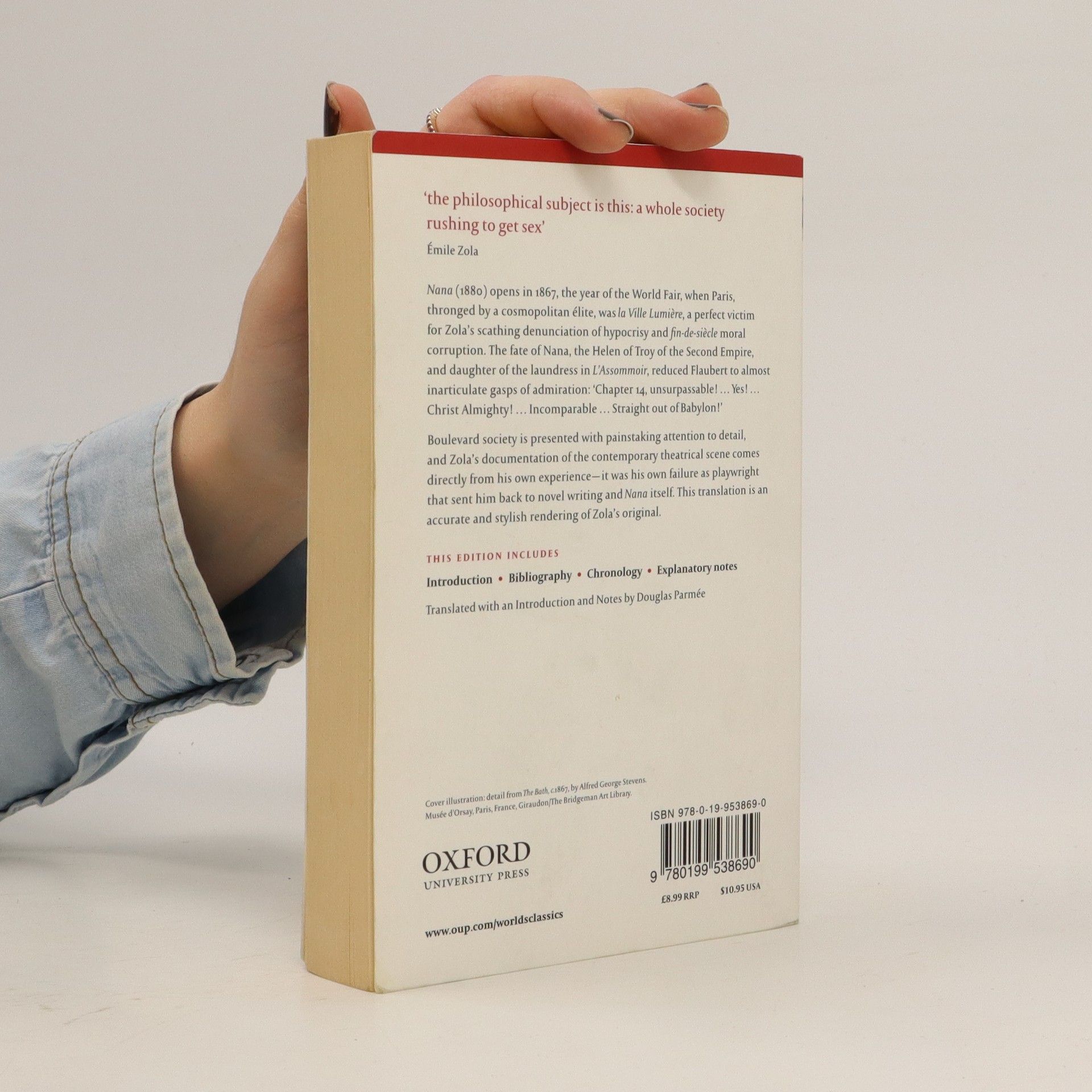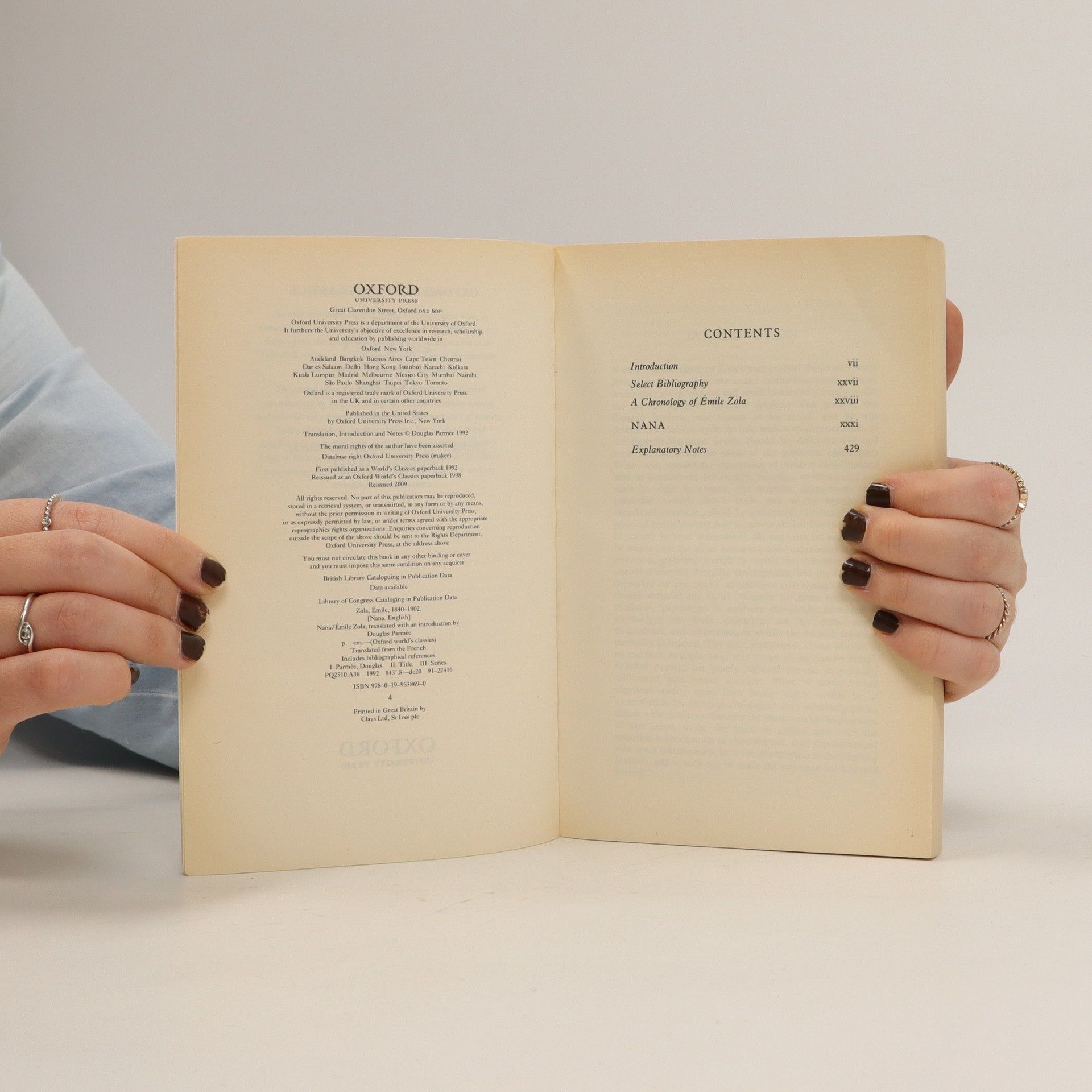Nana
Autoři
Parametry
Kategorie
Více o knize
Nana opens in 1867, the year of the World Fair, when Paris, thronged by a cosmopolitan élite, was la Ville Lumière, a perfect victim for Zola's scathing denunciation of hypocrisy and fin-de-siècle moral corruption. The fate of Nana, the Helen of Troy of the Second Empire, and daughter of the laundress in L'Assommoir, reduced Flaubert to almost inarticulate gasps of admiration: `Chapter 14, unsurpassable! ... Yes! ... Christ Almighty! ... Incomparable ... Straight out of Babylon!' Boulevard society is presented with painstaking attention to detail, and Zola's documentation of the contemporary theatrical scene comes directly from his own experience - it was his own failure as a playwright which sent him back to novel-writing and Nana itself. This new translation is an accurate and stylish rendering of Zola's original, which was first published in 1880.
Vydání
Nákup knihy
Nana, Douglas Parme e, Émile Zola
- Jazyk
- Rok vydání
- 2009
Doručení
Platební metody
2021 2022 2023
Navrhnout úpravu
- Titul
- Nana
- Jazyk
- anglicky
- Autoři
- Douglas Parme e, Émile Zola
- Vydavatel
- Oxford University Press
- Rok vydání
- 2009
- Vazba
- pevná
- ISBN10
- 0199538697
- ISBN13
- 9780199538690
- Kategorie
- Světová próza, Oblíbená klasika
- Anotace
- Nana opens in 1867, the year of the World Fair, when Paris, thronged by a cosmopolitan élite, was la Ville Lumière, a perfect victim for Zola's scathing denunciation of hypocrisy and fin-de-siècle moral corruption. The fate of Nana, the Helen of Troy of the Second Empire, and daughter of the laundress in L'Assommoir, reduced Flaubert to almost inarticulate gasps of admiration: `Chapter 14, unsurpassable! ... Yes! ... Christ Almighty! ... Incomparable ... Straight out of Babylon!' Boulevard society is presented with painstaking attention to detail, and Zola's documentation of the contemporary theatrical scene comes directly from his own experience - it was his own failure as a playwright which sent him back to novel-writing and Nana itself. This new translation is an accurate and stylish rendering of Zola's original, which was first published in 1880.





